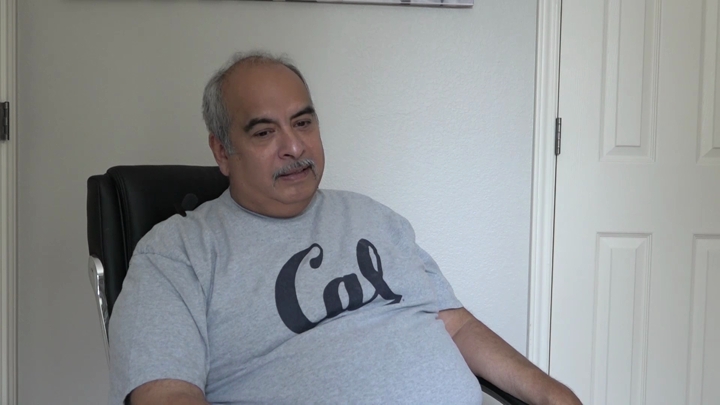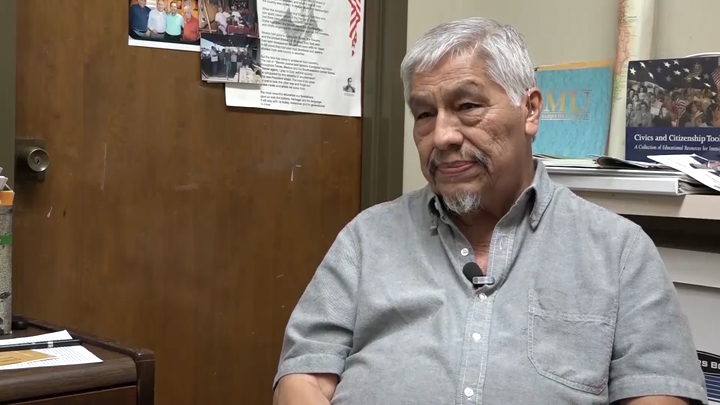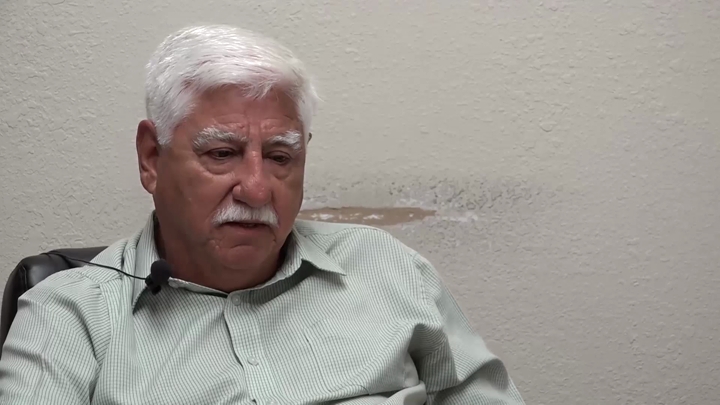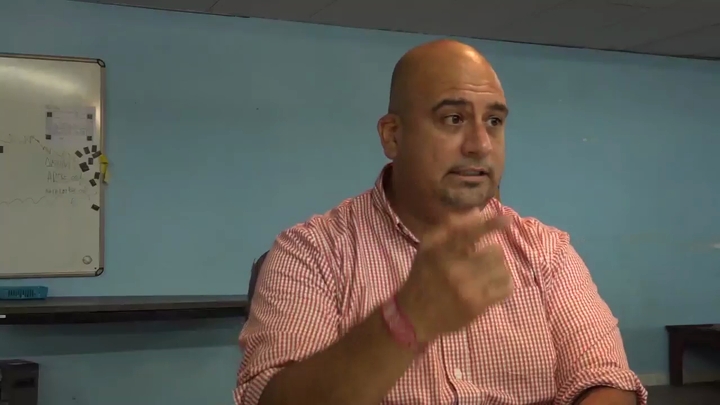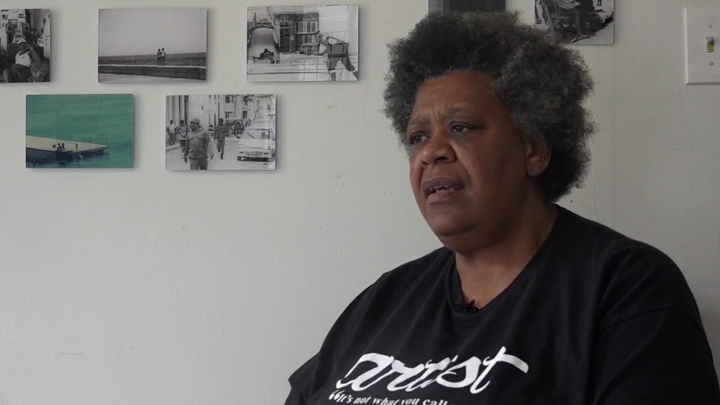Jimenez / Elementary and High School
sign up or sign in to add/edit transcript
Maria Jiménez: So, at the time I was just someone who attended Immaculate Heart of Mary. The priest was active and we collected things. But the conditions like at Melby, there was stark discrimination. You could hear the people- Anglos- talk about Mexicans. The only place where Mexicans were active was in the ROTC. That was kind of the sphere. All the males in the ROTC. I got into the debate club and participated there but were judged. I remember losing debates because some judge said, “That little Mexican girl cannot possibly be a winner.” I remember that specifically from a debate we had at Goliad, Texas. So, there were experiences of that type throughout my high school years, and being excluded because we were Mexican from certain activities. In my case I wanted the right to go to a mock legislature. I was excluded because I was not a US citizen, I was not a US citizen at the time. I was still a legal resident. There were a lot of experiences in those years. Since I was active in debate, and one of the contests was oratory, I at least began to develop a conciseness for redress of the civil rights movement. So my oratory, which was always pre prepared, and you gave the same one, I began to focus it on the inequalities of fates by Mexican Americans in the United States and the Civil Rights Struggles that began to emerge. Not only on Cesar Chavez but Reies Lopez Tijeriena and what was beginning to be a youth movement in Texas. So by the time I was in high school I was pronouncing oratory, and that oratory was one the judges liked or they did not. So I won or was rejected completely, but it was the content of it was already about a civil rights movement or the need for a civil rights movement. Interviewer: I have a question- Can you tell us about learning English and what it was like when you did not have the language skills? And also can you tell us about if there was any discrimination- about being left out from Mexican Americans or other people that were born here in the United States when you were a legal resident? Maria Jiménez: When I was in elementary, all I remember is the frustration of not being able to ask fundamental questions. For some reason, one of the few teachers who was Mexican American in my first six months of the first grade- I cannot even remember her name. But instructions for workbook, I could not do them because I did not understand. I remember she cheated once, she actually came and told me in Spanish, which was against the rules, that I was supposed to circle these little ducks. I do not remember, but otherwise you did not learn unless you picked it up. I mean, you picked it up or did not. I remember culturally the discrimination. I remember they used to laugh that we ate tacos and my mother had to learn to fix us a lunch on white bread with bologna, which was totally not part of our cultural experience in Mexico. But I remember throughout the anti Mexican sentiment. Which was strange to me because I remember my time in Mexico, my parents were the type to take us back to Mexico on summer vacations, as well as December, sometimes we would spend two months in Mexico during the Summer. So for my parents in Mexico had a strong sense of the pride of the people and the history of Mexico, so it was a very conflicting time. To come back to the US where it was very Anti Mexican and to go back where it was great deal of history and pride and experience. Particularly, because my grandfather had a lot of books and he was the type that would talk about historical figures and so forth. It was a conflicting interpretation of what being Mexican was about. But it was definitely throughout my elementary experience, everything that was Mexican was considered to be bad, here in the states. That is why I think when we were understanding what injustice was and beginning to concretely understand how it was a civil rights issue, particularly in the college years that many of became part of the Chicano movement. I think many of us began to understand part of the movement was a cultural renaissance. A reclaiming our culture as a legitimate culture.
| Interview | Interview with Maria Jimenez |
| Subjects | Family › Family Histories and Traditions |
| Race Relations › Anglo-Mexican Race Relations | |
| Discrimination or Segregation › Discrimination or Segregation at School | |
| Education › Elementary Education | |
| Education › Secondary Education | |
| Education › Higher Education | |
| Education › Speaking Spanish at School | |
| Education › Teachers and Administrators | |
| Education › Extracurricular Activities | |
| Student Activism | |
| Chicano Power | |
| People › Chavez, Cesar | |
| Tags | sign up or sign in to add/edit tags |
| Interview date | 2016-06-13 |
| Interview source | CRBB Summer 2016 |
| Interviewees | Jimenez, Maria |
| Interviewers | Enriquez, Sandra |
| Rodriguez, Samantha | |
| Locations | Houston, TX |
| Duration | 00:05:35 |
| Citation | "Elementary and High School ," from Maria Jimenez oral history interview with Sandra Enriquez and Samantha Rodriguez, June 13, 2016, Houston, Civil Rights in Black and Brown Interview Database, https://crbb.tcu.edu/clips/4585/elementary-and-high-school, accessed February 26, 2026 |


